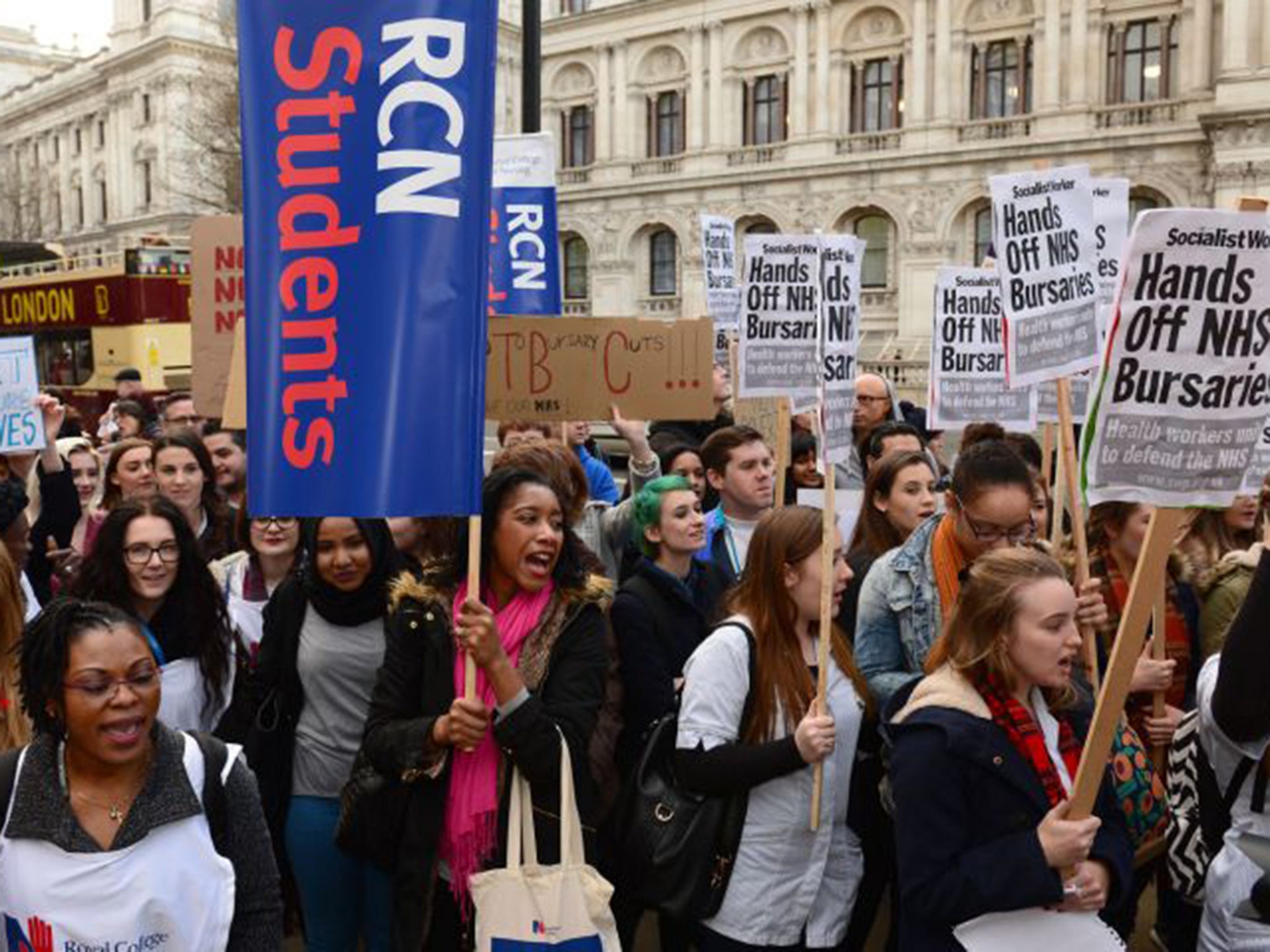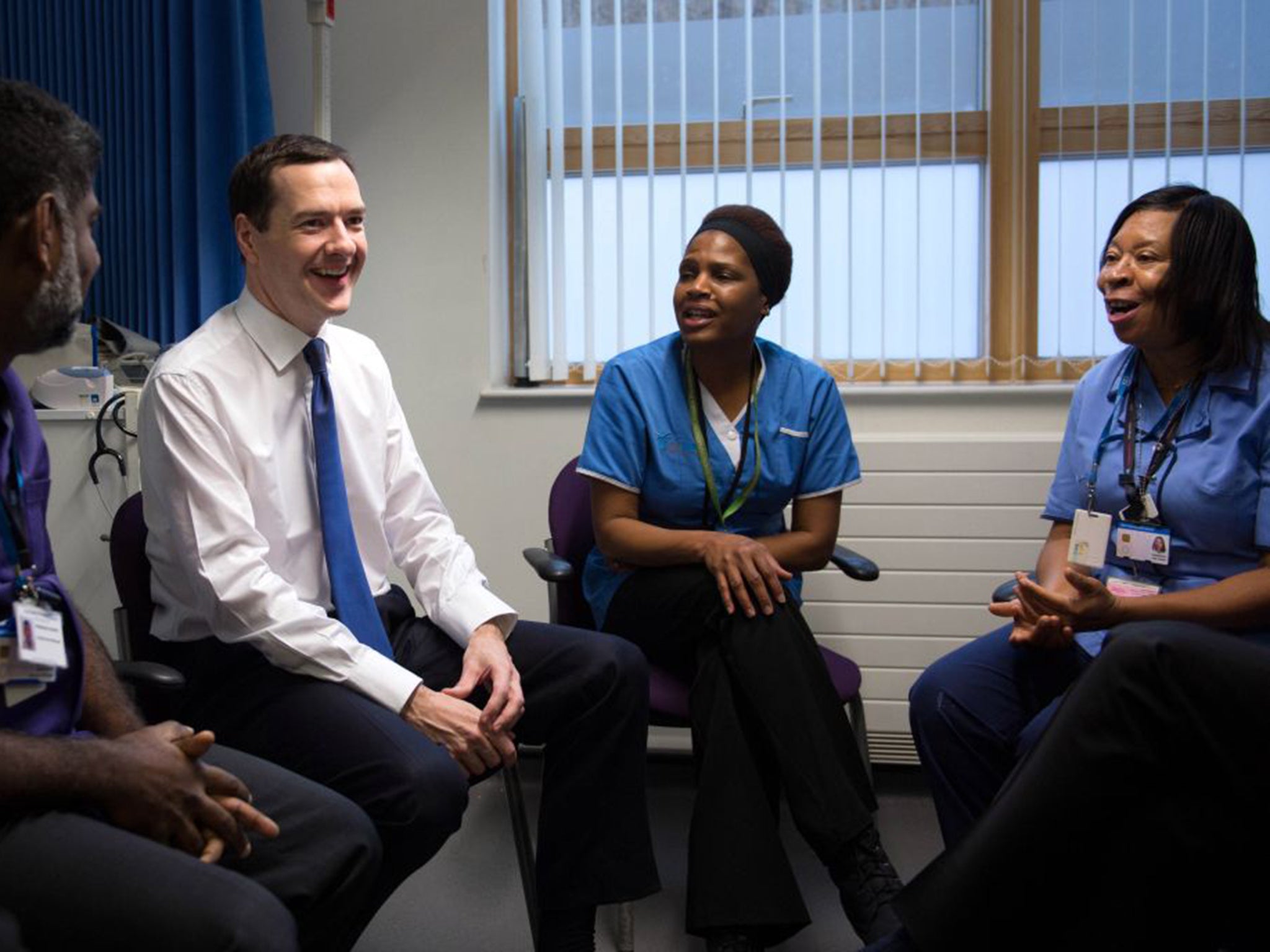NHS trainee nurses plan march to protest 'scandalous' tuition fee changes
Under the controversial reform, nurses will also have to pay £9,000-a-year student tuition fees for the first time

Trainee nurses and midwives are planning a major campaign against government plans to make them pay for their own training with student loans after it emerged that their earnings will be cut by £900 a year as a result. In last month’s Autumn Statement, the Chancellor George Osborne, announced that NHS bursaries, which are paid to student nurses to cover their living costs while studying, will be converted into formal student loans that will have to be repaid, depending on future earnings.
Under the controversial reform, nurses will also have to pay £9,000-a-year student tuition fees for the first time. Together, the package means nurses could start their careers at least £51,600 in debt, with an immediate demand from the Student Loans Company to start paying it off. The current starting salary for a nurse is £21,692 – rising to £22,799 by 2020. Under current repayment rules, nurses will have to start paying back loans as soon as they graduate.
Now furious trainee nurses have organised a mass protest against the changes, with a march on Parliament scheduled for 9 January, The Independent on Sunday can reveal. Unions and Labour MPs also plan to ramp up their campaign against the changes in the new year in a bid to match the impact of the planned junior doctors’ strikes, which forced the Government to back down earlier this month.
The campaign’s organiser is Danielle Tiplady, 29, who is in the final year of her nursing degree at King’s College London. She told The IoS the changes would stop poorer students from becoming nurses.

“People who have had children have told me they cannot afford to become nurses now – they cannot face that much money going out of their wage. It’s daunting having that much debt as well,” she said.
Ms Tiplady said the NHS would suffer if there was a fall in student nurses because of the changes. “We really contribute to patient care. It doesn’t just affect students, it affects the whole country because if you don’t have nurses, then who is going to look after people?” she said.
“I work 50 per cent of my time in the hospital. I’m directly involved in patient care. I do a proper job. I don’t have the time to work on the side to get money to live. The bursary is our link to the NHS, I don’t know how they can take that away from us.”
MPs have raised fears that because many students take up healthcare as a second degree, the changes may close off the route to those unwilling to shoulder £100,000 of debt.
Nursing students have to complete three years of full-time study, which amounts to a minimum of 2,300 hours in clinical practice over the course of their studies.
At the moment, nurses can receive a non-means-tested grant of £1,000 a year, plus a bursary of up to £3,191. They also have access to “maintenance loans” to boost their income.
Labour MP Wes Streeting, who has called an emergency debate on the issue in Parliament on 14 December, said the Government’s proposals were “scandalous”.
“As a direct consequence of taking away the NHS bursary and making trainees foot the bill for their tuition fees, nurses and midwives will end up being £900 a year out of pocket to pay off debts of at least £51,600,” he said. “It is scandalous that these dedicated and essential frontline staff will be expected to foot the bill for their own training.
“By sneaking a few lines into the Autumn Statement, George Osborne hoped that the public wouldn’t notice that nurses and midwives will be plunged into eye-watering levels of debt for the first time to pay for their training.”
Mr Osborne claims the changes are necessary to pay for thousands of extra nurses to be trained each year.
Join our commenting forum
Join thought-provoking conversations, follow other Independent readers and see their replies
Comments